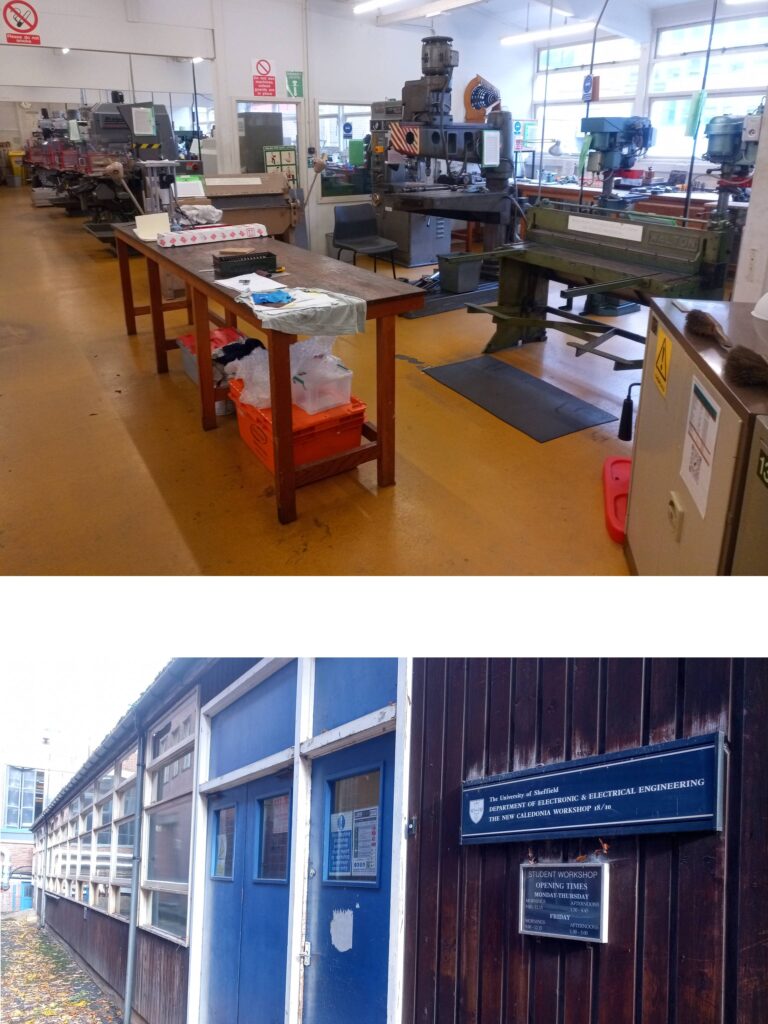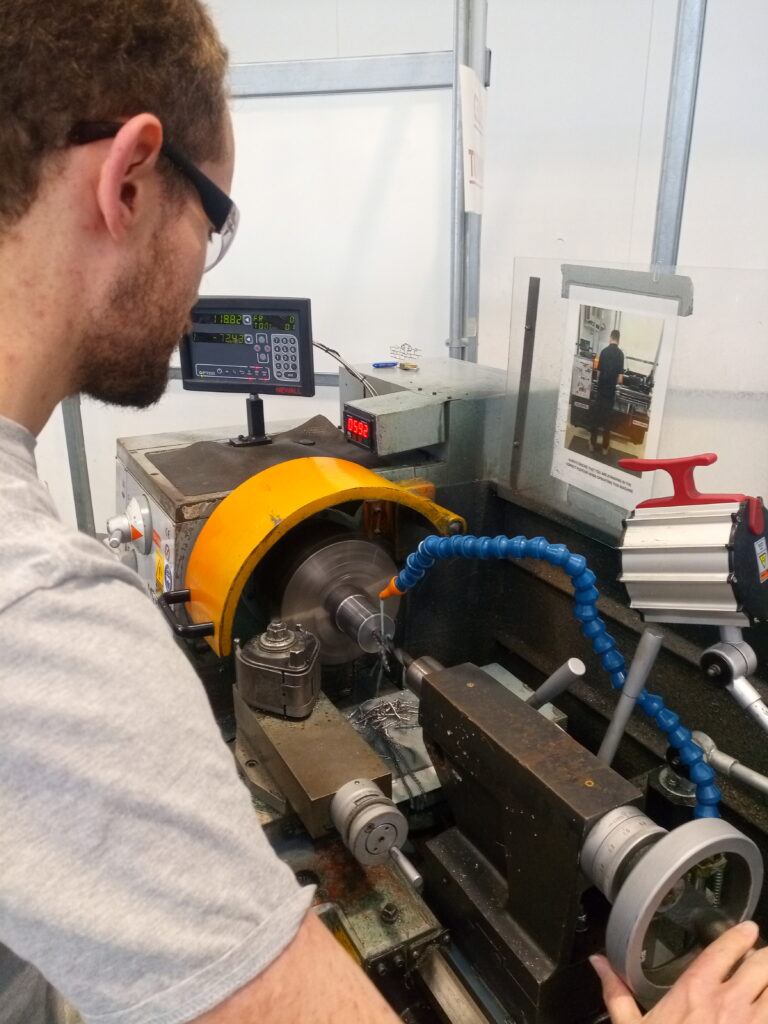Getting researchers into workshops: bridging the culture gap


Through Research England’s Enhancing Research Culture funding, Richard submitted an application and secured £18,600 for a project to bridge the culture gap between researchers and technical workshops. This project is in collaboration with Andy Patrick, workshop supervisor of the New Caledonia workshop and Steve Mason, the electrical and electronic engineering departmental technical manager at The University of Sheffield.
Over perhaps the last 3 or 4 decades, a division has apparently grown between researchers, who require experimental apparatus to perform their work, and technical workshops, that build the required equipment. This has resulted in a culture where the two disciplines sit apart. The onus typically falls on technicians to establish how to translate initial research requirement ideas, sometimes informally sketched out “on the back of an envelope” so to speak, into reality. Equivalently, for those researchers who do wish to be directly involved in building or modifying their equipment, few routes exist for them to access workshop tools (particularly lathes and mills).
In summary, this initiative is a pilot scheme, intended to evaluate and demonstrate the interest in and utility of providing routes for researchers to access workshop facilities. Around £10k of this funding will fund sending 7-8 signed up PhDs, PDRAs and academic staff on 4 day milling and turning introduction courses at the AMRC Training centre, providing documented training in the necessary skills. The right photo shows Richard on such an introduction to turning course at the AMRC in advance of this initiative. From this skills foundation, induction matrices and skills demonstration tasks will be formulated by the workshop to provide a formal route for researchers to competently use machine tools. The remaining £8k or so will be used to stock the accessible (name to be decided, previously/currently the “student” space) of the New Caledonia workshop, shown in the left two photos, with a range of high quality hand, measuring, and cutting tools, along with potentially 3D printers, as well as advertise this space.
The student space in the New Caledonia workshop is currently little known about. The aim of this initiative, through creating access routes and engaging with the most interested researchers, is to create a critical, self-advertising and self-sustaining user base of these facilities, and ultimately create the researcher equivalent to the successful, student-only iForge makerspace at The University of Sheffield. The benefits to both research and technical staff are numerous and too many to fully list here, ranging from safety oversight of DIY projects, facilitating responsive research, passing on technical skills (technicians as trainers), better integration between the communities and improved mutual technical vocabulary/communication, facilitation of “open source” projects, and a cohort of researchers with engineering skills placed “on the ground” within academic departments able to advise others on experimental design and offer additional embedded safety awareness.
Details and outcomes of this initiative will be added to this page as appropriate.

